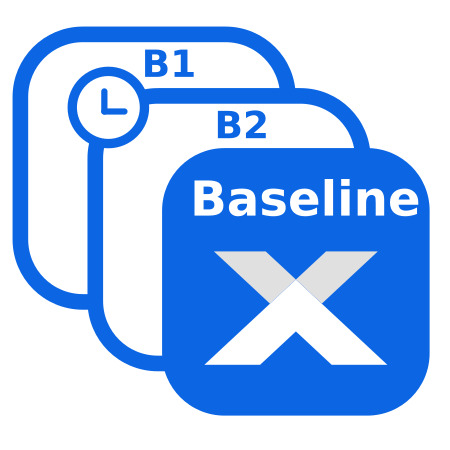Success becomes more attainable when you establish clear and realistic objectives. Having well-defined goals rooted in reality provides a roadmap for achievement and helps you stay focused on meaningful progress.
The SMART framework is a strategic approach to goal setting that ensures clarity, focus, and effectiveness. It's an acronym that stands for Specific, Measurable, Achievable, Relevant, and Time-bound. Let's now delve into each of these components in detail.
Let's discuss what is a SMART goal in detail
What is a SMART goal?

SMART goals are a strategic framework for setting objectives comprising Specific, Measurable, Achievable, Relevant, and Time-Bound criteria. By defining these parameters, you ensure that your goals are both realistic and attainable within a designated timeframe. This method eliminates ambiguity, establishes clear deadlines, and facilitates progress tracking, enhancing your ability to achieve desired outcomes.
Here's an example of a SMART goal:
Specific: Increase website traffic Measurable: By 30% Achievable: By implementing SEO strategies and content marketing Relevant: To attract more potential customers and enhance online visibility Time-bound: Within the next six months
SMART Goal Statement: Our goal is to increase website traffic by 30% within the next six months through the implementation of SEO strategies and content marketing efforts. Accomplishing this goal will attract more potential customers to our website and enhance our online visibility.
How to write SMART goals?
Let's delve deeper into the five components essential for crafting a SMART goal.
S: Specific

For a goal to be impactful, it must be specific, addressing key questions such as:
-
What is the desired outcome?
-
Who is accountable for its attainment?
-
What actions are necessary to reach it?
Thinking through these questions helps get to the heart of what you’re aiming for. Here’s an example of a specific goal you might come up with:
Implement SEO techniques and content marketing strategies to enhance website visibility and engagement by increasing organic traffic to Optimizory’s blog section.
This specific goal outlines the desired outcome, and the actions required for implementing SEO techniques and content marketing strategies.
M: Measurable

While specificity lays the groundwork, quantifying goals is crucial for effective tracking and determining completion. Without measurable benchmarks, it's challenging to gauge progress accurately and know when objectives have been achieved.
Consider our example of increasing website traffic by 30% through SEO and content marketing. Simply aiming to increase traffic without a defined metric leaves room for ambiguity. How would you know if you've reached the target?
To enhance this SMART goal, let's incorporate measurable benchmarks: MEASURABLE Boost website traffic by 30% within the next six months, equating to an additional 5,000 monthly visitors. This will be accomplished by implementing SEO strategies and content marketing efforts.
A: Achievable

At this point, it's crucial to conduct a reality check. Goals should be realistic, within reach, and not set impossibly high. It's essential to assess whether your objective is something that your team can feasibly accomplish.
Considering our SEO website traffic goal, we need to ensure that our plan is achievable. For instance, if we set out to increase website traffic by 30% within six months through SEO and content marketing, we must evaluate whether our resources, capabilities, and timeline align with this target.
Here's how we can refine the goal to ensure achievability: ACHIEVABLE Boost website traffic by 20% within the next six months, equating to an additional 3,000 monthly visitors. This will be achieved through the implementation of SEO strategies and content marketing efforts, considering our current team size, workload, and available resources.
By setting an achievable goal, we set ourselves up for success while ensuring that our objectives are within reach given our existing constraints and capabilities.
R: Relevant

At this stage, it's essential to consider the broader context and significance of your goal. How does achieving this goal contribute to the overall objectives and mission of your organization?
In the case of our SEO website traffic goal, we need to ensure that our efforts align with the broader business objectives and serve a meaningful purpose. Here's how we can refine the goal to ensure relevance:
Increase website traffic by 20% within the next six months, equating to an additional 3,000 monthly visitors. This will be achieved through the implementation of SEO strategies and content marketing efforts. By driving more traffic to our website, we aim to enhance brand visibility, attract potential customers, and ultimately boost online sales and conversions.
By framing the goal within the context of broader business objectives, we ensure that our efforts are aligned with the company's overall mission and contribute meaningfully to its success.
T: Time-bound
Setting a deadline is crucial for maintaining focus and accountability. When will you achieve your goal? By what date should all the necessary actions be completed?
For our SEO website traffic goal, it's essential to establish a clear timeframe to guide our efforts and measure progress effectively. Here's how we can incorporate time-bound parameters into our SMART goal:
Increase website traffic by 20% within the next six months, equating to an additional 3,000 monthly visitors. This goal will be achieved through the implementation of SEO strategies and content marketing efforts, commencing in June 2024 and concluding by the end of December 2024. By setting this deadline, we ensure that our team remains focused and committed to achieving measurable results within a defined time frame.
Mastering the art of setting goals through the SMART framework equips you with a powerful tool for success, regardless of the scale or complexity of your objectives. By ensuring your goals are Specific, Measurable, Achievable, Relevant, and Time-bound, you create a clear path, paving the way for unwavering clarity, focus, and accountability in your pursuit of excellence. Whether you're aiming for personal growth, professional advancement, or organizational success, adopting the SMART approach empowers you to set and attain goals with confidence and precision. So, embrace the SMART framework and embark on your journey towards realizing your aspirations, one SMART goal at a time.






